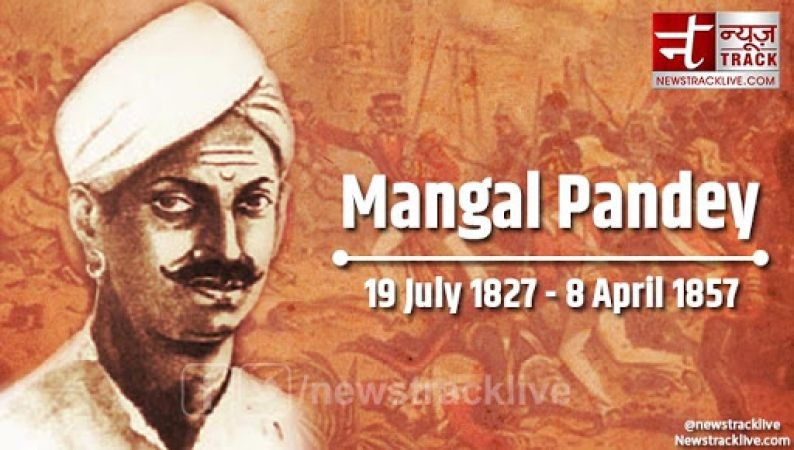
Born on July 19, 1827, Mangal Pandey was a soldier who played a significant role in the events leading up to the outbreak of the 1857 revolt, also known as the Indian uprising against the British. His actions and courage would later be regarded as the catalyst for India's first war of independence. Mangal Pandey served as a sepoy in the Bengal Native Infantry's 34th Regiment, which was a part of the British East India Company.
Mangal Pandey hailed from a humble background, born in Nagwa village in the Ballia district of present-day Uttar Pradesh, India. He grew up in a society that was becoming increasingly resentful of the British East India Company's oppressive policies. The Company's heavy-handed approach, particularly in relation to Indian soldiers, would eventually push the nation to the brink of rebellion.
In 1857, the discontent among the Indian soldiers reached its peak. Rumors spread that the British had issued new rifle cartridges that were greased with animal fat, derived from cows and pigs. For Hindu and Muslim sepoys, the use of such cartridges was deeply offensive due to religious reasons. The act of biting the cartridge open required using one's mouth, thus allegedly consuming the animal fat.
It was during this tense atmosphere that Mangal Pandey took a stand. On March 29, 1857, in Barrackpore (present-day Kolkata), he refused to use the greased cartridges and incited his fellow sepoys to join him in revolt. Mangal Pandey's defiance and leadership ignited a spark among the soldiers, marking the beginning of a large-scale rebellion against British rule.
In a brazen act of rebellion, Mangal Pandey attacked British officers at Barrackpore. He targeted Lieutenant Baugh, the adjutant of his regiment, and attempted to shoot him. Although the shot missed its mark, the incident caused a significant uproar and heightened tensions between the sepoys and the British.
The British authorities swiftly arrested Mangal Pandey, and he was put on trial. Despite being held captive, his actions had already set the wheels of revolution in motion. The events following his arrest culminated in the widespread revolt of sepoys across North India, with rebellion spreading to cities like Meerut, Delhi, Kanpur, and Lucknow.
Mangal Pandey's bravery and determination resonated with the Indian populace, who saw him as a symbol of resistance against British oppression. He became a hero and a martyr, inspiring countless individuals to join the fight for independence.
Sadly, Mangal Pandey's journey was cut short. On April 8, 1857, he was executed by hanging in Barrackpore. His sacrifice, however, was not in vain. His actions had sown the seeds of a nationwide rebellion that would continue for several months and ultimately paved the way for India's struggle for freedom.
Mangal Pandey's legacy as a freedom fighter and his role in India's first war of independence remain deeply ingrained in the country's history. His name is synonymous with bravery, resilience, and the indomitable spirit of the Indian people.
On Mangal Pandey's birth anniversary, we remember his courage and sacrifice. His unwavering determination continues to inspire generations, reminding us of the importance of standing up for justice and freedom. The struggle for independence was a collective effort, and Mangal Pandey's contribution serves as a poignant reminder of the sacrifices made by countless individuals in the fight against colonial rule.